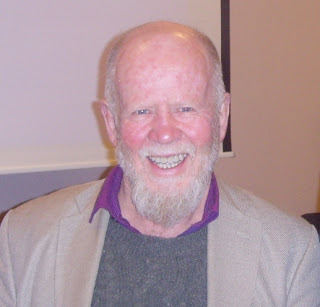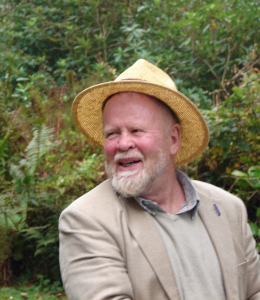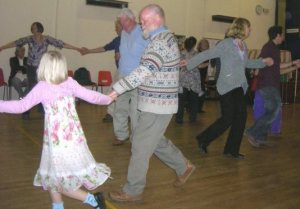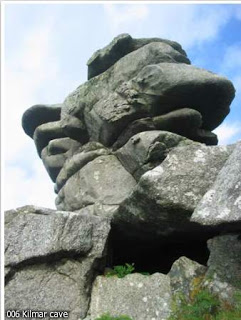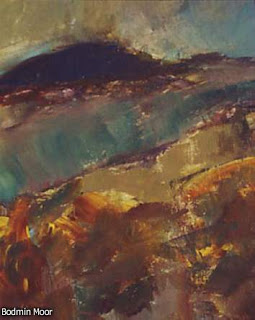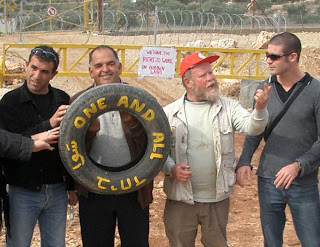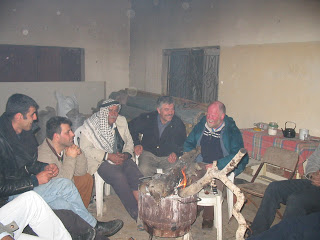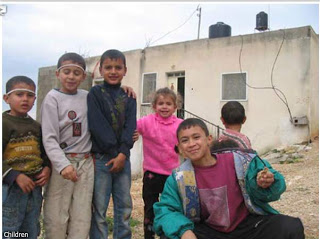Death of a Christian friend of the Palestinians father of my friend Cathy
The last time I saw Roger was on the 11th August 1999, at the time of the last solar eclipse of the sun. I got it into my head that the weather in Cornwall would be fine and I decided to drive down from Brighton. Unfortunately it was as cloudy, if not more so, in Cornwall than in Sussex.
Over the years we spoke a number of times.
Roger’s only daughter Cathy is one of my oldest and dearest friends. We met nearly 30 years ago when Cathy was a student at Sussex University. Cathy was one of the original founders of the Palestine Solidarity Campaign branch in Brighton. Her home was in Warleggan, a little Cornish village on the edge of Bodmin Moor. She lived in a garden oasis in the midst of arable farmland on three 3 acres of land known as the Rookery.
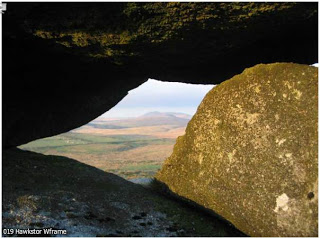 |
| hawkstore |
I visited The Rookery on a number of occasions and got to know Roger, who was active in the Church of England Synod and a firm supporter of the Palestinians. He had a booming, distinctive voice. Since Roger passed away on 22nd January I have found far more out about him, including that he was the Mensa Intellectual Activities organiser and in the throes of organising ten very different conferences this year.
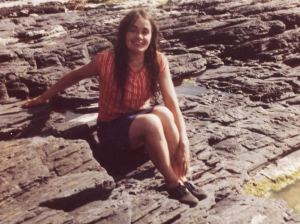 |
| Laura – a poet and Roger’s beloved wife |
Roger was a lovely and kindly man. A true British eccentric with a heart of gold. He wasn’t prepared, as an active Christian, to try and atone for past Christian anti-Semitism by condoning the vicious military occupation of Palestine and the continuous ethnic cleansing. Not for him the weasel words and platitudes of the Council of Christians and Jews. He was devoted to ensuring that other people live truly human lives. In 2003-2004 Roger was one of the first Ecumenical Accompaniers in the EAPPI programme and worked at sometimes high personal risk on the barrier wall separating Palestinians in the village of Jayyous from their farmland on the other side. A Palestinian colleague remembers:
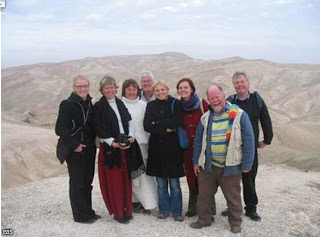 |
| Roger and EAPPI delegation to the Palestinians |
Jayyous needs people like CATHY ROGER, and it is the right time to think to visit Jayyous. Since 3-weeks the Israeli Bulldozers started smashing the land and uprooting the olive trees. A new 4200 meters of walls and fences will be built in Jayyous. A new settlement will be built in Jayyous. Jayyous is passing a new disaster now on a very critical period which is more disastrous than the time Roger was here. Jayyous is crying today for Roger to come and witness what is happening and what he was expecting to happen. Tell CATHY, the land where the wall is being built was documented by Roger’s GPS. Tell CATHY the nuclei of new settlement is being built where Roger was fighting the bulldozers. Tell CATHY our land is mourning the man was trying to protect. Tell CATHY the people of Jayyous love Roger.
I still remember the day we crossed together the mountains from Jayyous to Nablus where I have been working. There was no taxi, and we were not allowed to use the asphalt roads. It was risky, but he showed courage, strength and smiles never left his face. His heart is full of love; you like to set with him; you feel safe with him; you feel close to him as member of your family. Even after 10-years passed, I can still see him standing talking to me and remember his sweet words to me. He is so kind to kids and all people who met in Jayyous. It is not easy to forget him. If you met Roger you must love him. I share tears and good memories with his family. Tell CATHY, her father was a great man, very kind, peaceful; our land loves him, and we love him forever. Cathy come and see where your father was walking and why he was standing in the middle of land. Your father commitment to Palestine is his commitment to peace. Feel proud of your father’s name, memories, and biography.
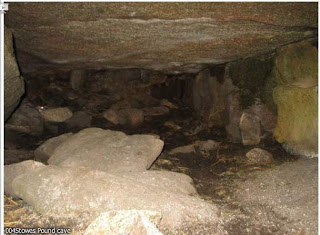 |
| Stowes pound cave |
I have compiled below a number of photographs, poems and writings by Roger Farnworth. His memory lives on in the hearts of those who love him. I can only extend my warmest sympathy to Roger’s children Cathy and Tristan and his grandchildren Katinka and Rozelle.
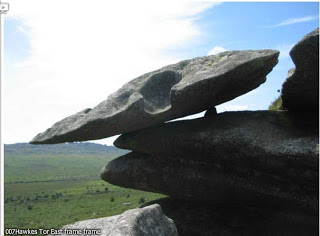 |
| hawkes tor |
Tony Greenstein
See for further links
A obituary on the local Warleggan website
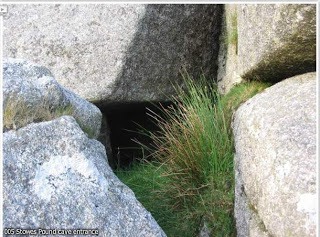 |
| Stowes pound cave entrance |
Roger was born in Truro, Cornwall. His parents, Edna and Reg, came from Lancashire. Roger well remembered travelling to visit his grandparents towards the end of the war, seeing Manchester in ruins, and the blackouts. His maternal grandfather, Thomas Wolstenholme, came from a Kearsley mining family but entered the cotton trade, moving from rags to riches twice over. He was famed for testing a bolt of cotton by simply fingering it with eyes closed and at one time took almost all the cotton from Mauritius. Roger’s grandmother, Effie, was a Primitive Methodist and had worked in the cotton mills before training as a dressmaker. The hardworking, strict lives of the Wolstenholmes were part of the weave of Roger’s life.
Roger went to board at Taunton Boys’ School when he was seven years old. He was desperately unhappy there. He then went to Probus School, where he was known as ‘Brainbox’ by all the boys. Later, he studied philosophy at the University of Bristol and then took a social work diploma at the University of London. In 1963 Roger became one of seven interviewers employed by the Central Council for Health Education for a completely new kind of investigation at the time into the sexual lives of young people (the results are in a book by John Schofield). One of the team members was Laura Renouf, from Jersey. He was immediately struck by her, recalling that he defended her views on Nabakov in a heated group discussion, upon which she turned to him and kissed him square on the lips. Only very recently Roger was recalling how he went to Selsey marshes with Laura. She was an ardent birdwatcher and flower lover, and he was stunned how she called the landscape from drab browns and greys into a throb of life. It was with Laura that Roger built his fundamental understanding of the world as ‘Miracle’ for a mystery that can be seen in wild nature but also goes beyond.
With Laura and their Latvian friends, especially Monika and Guntis, refugees from the war, life changed utterly for Roger. He was no longer a conventional boy who had never read for pleasure. Worlds opened up suddenly – drinking, dancing, the impassioned poetry of the Latvian diaspora. This joy stayed with him always as Roger’s friends will most certainly remember.
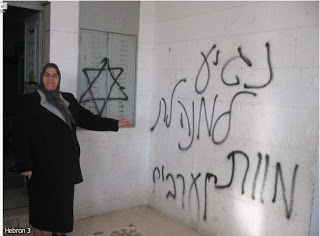 |
| Racist graffitti daubed by settlers in Hebron |
In 1964 Roger and Laura, together with Cathy, their six month old daughter, travelled to Zambia to work as English teachers. They stayed there for four years, working in three schools in the remotest parts of Northern Province near the Congo. These were huge experiences at a time when post from home took weeks and the skies and vistas in Zambia seemed endless. Tristan, their son, was born in the last year of their stay. Laura and Roger shared the birth of Zambia as an independent nation, and when they went for further training to Rhodesia they soon got involved in demonstrations against Ian Smith. At one hustings, together with some African students, they prevented Mr Smith from speaking. Roger called, ‘Beware the Ides of March’ and both Laura and Roger were arrested. Laura’s face was on the front page of the nation’s newspapers the next day, a never-ending source of pride to Roger. Their demonstration resulted in a court case and deportation back to Zambia. Roger fought all his life for the cruelly oppressed, supporting Survival International, a small Ethiopian trust and many more charities working in developing countries. About ten years ago he became an Observer with the Ecumenical Accompaniment Programme in Palestine and Israel (EAPPI) for several months, working at the barbed wire walls to ensure the Palestinians could cross to tend their olive groves. Upon his return Roger gave over sixty talks all over Britain to encourage new observers to come forward. He cared passionately about the freedom of the Palestinians and of all peoples.
For two years or so after returning from Zambia (via Afghanistan and India in Roger’s case), Roger and his family moved around Cornwall and Ireland seeking a new life, and they spent a year in Saudi Arabia, too. Their aim was to do up an old, remote property and enter the tourist trade. In 1970 they found a most beautiful dilapidated rectory in Cornwall amid tall beeches. The Rookery, Warleggan became their home and a place they loved passionately. Roger developed a new skill, building and decorating. For years he worked as a teacher during the day and on the house till late at night. The Rookery was let to holiday makers in the summer and then to quirky, wonderful hippies during the winters. After Laura’s death on January 2nd, 1980 the meaning of the Rookery changed. Roger came to see it as a haven for people harmed in some way and for this reason rented out flats to people with sometimes very difficult lives, and of course, he continued to seek out tenants with a wild unconventional understanding of the world. Throughout his life, Roger supported his friends in every way possible, including in their darkest hours.
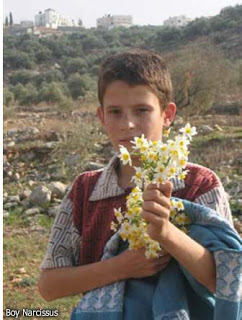 |
| boy narcissus |
Roger was profoundly affected by Laura’s death and grieved for her deeply all his life. It took him years to build a new life that held true to the poetry, painting and love of the wild world that he had shared with Laura together with new interests. Roger was a founding member of the North Cornwall Seven group of artists which exhibited widely. He joined the Liskeard Poets and other poetry groups, writing poems with few words that went to the beauty and ache of the world. He loved going on retreats at Dartington Hall and Sharpham, and spent many years with the Julian Group and other religious study and meditation groups. He worked closely with Oxfam to teach school children across Cornwall about developing countries and was a member of the local United Nations Association. In his work for the Bethany Trust, he greatly valued taking people with HIV/AIDS on days out to the sea and pub at a time when this illness was not curable. An early association was with the Footsbarn Theatre company. He was on their management committee for many years, and following their fantastical shows, drank and danced many a night way. Roger loved world music and festivals, and delighted much younger festival goers as he joined in their revelry. Roger also had a profound interest in astronomy. He loved the vastness and mystery of the heavens, and took a huge interest in the latest scientific research into the galaxy.
Over the last decade or so, Roger started to study the archaeology of Bodmin Moor and further afield. Very recently he gave a talk to the Cornwall Archaeology Society and was to give a talk on cliff castles in May. Roger developed new ideas about the meaning of Neolithic monuments across Cornwall which came to be recognised by professional archaeologists as profound and significant, and he discovered many new cairn platforms, other archaeological features, and also view frames centred on Rough Tor above which the cosmos revolves with the North Star. Landscape for Roger was holy. The way the Neolithic monuments called to each other across Cornwall and the heavens meant everything to him. Roger loved nature’s unknowable unpredictable hand on the landscape, the shifting light and trees bent down by the wind. Roger fought against wind turbines in remote locations, including in Warleggan Parish, whilst spending much time researching other forms of renewable energy and advocating community managed energy schemes. He said regarding a proposed wind farm on the slopes of Rough Tor, ‘I feel we will have let down future generations who will never again experience the wild isolation and rugged beauty of Rough Tor’s archaeology. Their insights into the earliest Neolithic will be dominated by energy generators. I fear that some think knowledge filleted from the past is all that matters. It is the quest to imaginatively recreate Neolithic experience that will irrevocably be harmed by the wind farms.’
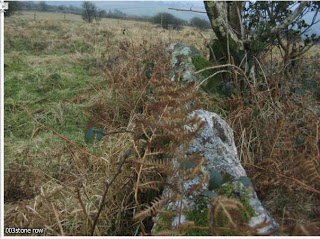 |
| stone row |
Roger was very active in Mensa, working with them for many years on the programming of their Arts and Science Days. He organised Think at Oxford and compiled the Think magazine. He was recently appointed Intellectual Events Officer for Mensa and was preparing ten major conferences around the country this year. Mensa says: ‘Roger was a man with a huge intelligence but also a man with a wonderful sense of fun. And most of all he was a man with a great aim – to widen the scope of the intellectual side of Mensa. To that end he set about organising a series of events which would provide food for thought – a menu for the mind. Roger was a great character and a thought challenger. He enjoyed encouraging group discussions and watching where people went with their knowledge, imagination and interpretation.’
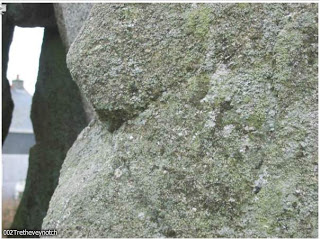 |
| trethevy notch |
Roger leaves two children, Tristan and Cathy, and two deeply loved grandchildren, Rozelle and Katinka. He will be missed terribly. It is profoundly true to say the world will miss him also, for it is less of a place without his deep perception and consciousness of it.
Roger Farnworth: Tribute by Mensa
23-Jan-13
It is with great sadness to tell you that we have been informed of the passing of Mensa’s Intellectual Events Officer, Roger Farnworth, who died yesterday (22 January 2013). Roger was very much a champion of Mensa and organised several events for the society including the Science and Arts Days; he will be sorely missed by many at Mensa. Everyone in Mensa has been shocked to hear the news about Roger. Our thoughts our very much with his family at this sad time. Roger was a great character and a thought challenger. He enjoyed encouraging group discussions and watching where people went with their knowledge, imagination and interpretation. ‘Mensa will miss their Intellectual Events Officer but will continue to benefit from the programme that he set out for the society. He was a true Ambassador for Mensa and a friend of many.’
John Stevenage, Chief Executive
ROGER’S WRITINGS FROM PALESTINE
Plato & the Palestinians: Talk given to Mensa groups in Jerusalem and Tel Aviv by Roger Farnworth
The purpose of this talk is to distance questions concerning the military occupation of the territories where Palestinians live from the usual contexts of controversial discussion by considering how the ideas of Plato’s ‘Republic’ might highlight new approaches and tentative solutions.
The hottest talking point in Athens was one that is bound up with the idea of justice. “What is the best form of government?” City-states were springing up round the Mediterranean wherever Greek traders settled. There was a creative variety of experiments in just or despotic rule. Likewise discussion of how the Israeli state and society should develop are perennially at the centre of this country’s political life.
Early in Plato’s ‘Republic’ Thrasymachus advances an opinion you will hear every day in Middle Eastern countries. There is no just government. Might is right. In nature the strong always have power over the weak and human societies are the same. You will hear it said that the Israeli state occupies Palestine because it is supported by American military and economic power and the P.L.O. became the sole representative of the Palestinian people because it had the most firepower. Plato’s “Republic” is the search for a more just form of government.
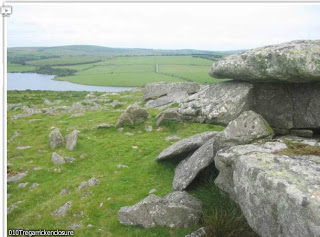 |
| treggarick enclosure |
Plato’s reply to Thrasymachus sounds weak. People are not designed to be immoral. They are intrinsically social and so inevitably moral. It is a surprisingly modern idea. Many sociologists would today reject much of the survival of the fittest model of evolution. They contend that early humans survived by co-operation made possible by language, itself made possible by a change in the position of the larynx. From this small beginning Plato built up his communitarian ideal.
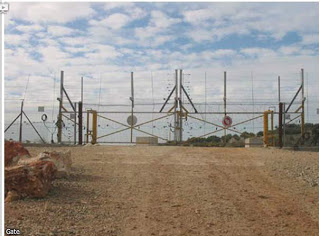 |
| Learning the lessons of history – Zionist prison camp in Negev desert |
But first Glaucon suggests a wily argument. If anyone obtained the fabled ring of Gyges, which made the wearer invisible, then most people would steal and cheat because they would escape punishment. The suicide member ‘invisibly’ enters a community to commit his crimes but of course doesn’t get away with it. Glaucon’s conclusion is surprising. Seeing that by nature everyone is a scoundrel we need protection from each other. This is how the social contract theory of government originated in a form made more notorious by Hobbes. Israeli’s enjoy government by consent of the governed but it is not by consent that Palestinian’s are governed by Israel. Military occupation is not a beneficial social contract. Therefore in social contract theory, they have every right to resist the military government. Maintaining power over Palestine can only be achieved by the government becoming ‘the gunman writ large’ and the word Palestinian’s frequently use to describe the occupying army is terrorist because they kill three times as many people as Palestinian terrorists and four times as many children.
 |
| River Jordan |
Unfortunately, Plato now becomes mystical. He says the concept of justice is known by encounter within the mind. Like goodness, truth and beauty it becomes as real as if you had met it. Plato thought that those in possession of this perfect knowledge should rule. Such persons should be prepared for the task by state education with morally uplifting texts and physical fitness in the manner of Spartans. Are there not Jewish and Moslem traditions and texts, which proclaim acquaintance with truth wisdom and justice through a form of religious insight? But there is a dark side to trusting innate perceptions. Plato would give absolute power to those who knew truth and justice over those who didn’t. Absolute power in the hands of young people, who believe they know justice, is dangerous whether it be Islamic Jihad or Israeli soldiers. At the gate in the separation wall that I monitor in Jayyous I have seen late teenage soldiers exercise their dominant power to deny the entry of farmers to their own land for the most arbitrary reasons. Plato’s young guardians know the correct answer to all moral problems and hence were moral experts. It may be the ideology of the day and seem natural and by consensus that state security demands a state morality which is exercised with absolute power by its guardians. Because of their confrontation Plato’s version of the absolute power of state morality is the pattern of Israeli and Arab governments. Yet from a European perspective we have become suspicious of state morality and Utopian ideology. Some element of personal choice and commitment is necessary. Wasn’t Plato wrong in thinking the state was more important than the individual? Are not most questions of justice matters for assessment and personal choice?
 |
| ruins |
Let us now consider how personal choice might best be exercised. I want to clarify the precise nature of the choice situation by reference to John Rowle’s theory of justice. This theory is linked to the social contract tradition that dates back to Glaucon in Plato’s ‘Republic’, which holds that human societies are to be pictured as associations into which we have voluntarily entered because it is in our mutual self interest to do so. However, unlike Glaucon, he seeks to find a way of removing the sorts of factors that could distort people’s choices by making them prone to act unfairly in their own selfish interests. This hypothetical thought experiment he sees as like cutting portions of a cake. If the cutter has been fair then she will be content to choose last, but may cheat if she knows she will choose first. So to choose fairly the characteristics of a just society there must be a veil of ignorance drawn over the circumstances in society we were to occupy. For example, we must imagine that we do not know whether we are to occupy a position of wealth and power. The settlement of the Palestinian question would be justly considered if we ignored how we ourselves stood to gain or lose by the solutions we propose. If we draw a veil of ignorance over whether we are an Israeli or Palestinian we could set aside the moral view point of the state to which we belong; the ideology which has come to seem natural. We could then pursue justice rather than ideology. Our choice would then not be determined by our social group but be personal. Such a personal commitment could then start to change the society to which we belong. I invite you to consider rights and duties and economic factors in the terms of this new version of a social contract both through debate and in a written version, which I will print in our newsletter ‘Think’. Is it too much to hope that moves towards peace might be not only the outcome of agreements between statesmen but also the consequence of individuals freely choosing a just portion of a future settlement between Israel and Palestine.?
Poem by Roger, from the Palestinians to the Israelis:
We have been here longer than the trees
We have been here longer than the trees
We will stay here longer than the stonesWe are married with a ring
A ring of bright razorsThe snake you feed until it grows long
Will bite the hand that holds it
It is for you,my friend, we mourn,
Power has made you rigid
Even a handshake troubles
And a smile alarms.
Newsletter from Jayyous
Hi, Thought you might like to know how life is going on here in the village of Jayyous about three kilometres from the green line that divides Israel from what is left of Palestine. There are about forty settlements between us and Jerusalem, many of them new, just a few caravans protected by soldiers. They are on the top of the hills and they claim all the land on the sides though it has been terrace farmed for centuries. Last weekend I was in a beautiful valley with the ninety people who farm there. On the hills on all sides caravans and houses are appearing. Lights beam down at night and armed settlers recently took a thirty acre field at gun point and ploughed it. They shot one villager dead and last month shot sheep that wandered on to it. The villagers never resist after the land is taken as they are very frightened. I saw the largest settlement of Ariel yesterday. It has more than a thousand houses – very expensive yet looking identical and seeming to march down the hillsides in serried ranks. The infamous separation wall will go round the settlement and will take in all the surrounding Palestinian villages on the Israel side of the fence. They will lose al their land and all roads to Palestine. They will have no option but to work in Israeli factories. I saw one such village that had lost its land and roads and had the fence on each side a kilometre apart with one side open and a new road that just led to the industrial estate the settlers had established.
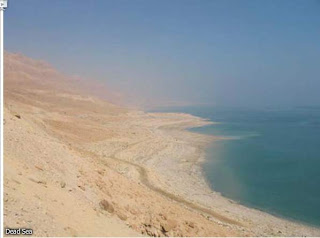 |
| The Dead Sea |
Here at Jayyous our situation is worse. The village is on a hill, twenty miles away you can see Tel Aviv and the Mediterranean. The villages will never be able to go to the sea even though many are refugees from there when that land was taken in 1948. Now the separation wall has taken all the village’s fertile land and the largest untapped water supply, the western aquifer, that lies under the land. The farmers must now get permits to go to their land and many farmers have not been given a permit. So their crops and greenhouses are not being harvested and they have no income at all apart from this land. So we try to see as many farmers as possible get through each day. I go the the gate at 6 am, 12 and 4 pm. Often the opening is an hour late, which in Ramadan is an awful strain on those who are fasting all day and wanting to return home for food. Last week stakes were driven into the ground in front of the other gate so no farmer get through again. There are tears and anger. They blame Britain for supporting the U.S. who is paying for the wall. When permits are re-issued in two months we believe fewer will get the permit, only the old. Our posters include the Cornish ‘One & All’ sign, which is translated into Arabic and Hebrew. Delegations from the German Green Party, Tel Aviv University, Lutheran and Israeli activists have all been photographed with this banner and one that says ‘We have a right to work on our own land’. I have plenty more plans for the farmers campaign.
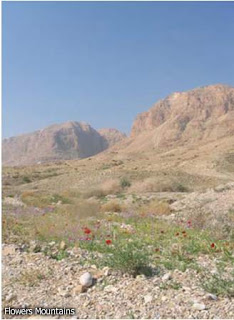 |
| Flowers on Mountain |
Its lovely autumn weather, I am sitting under an olive tree writing this letter in shirtsleeves. The storms, that are just beginning, are tremendous, lightening forks all over Israel. Not as loud perhaps as the percussion grenade dropped at the feet of a farmer three days ago, who had lined up at the gate without a permit. It was just outside our door. On the all night prayer called Al Kader, at the end of Ramadan, two grenades were dropped outside the mosque and I have part of the plastic covering. From the fence road the army often fires over the village, it’s hard to know why. I see the tracer and the pathetic row of stones the villagers put at the village entrance to stop the jeeps of the fourth largest army in the world.
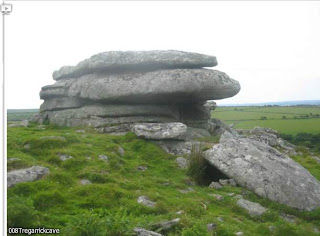 |
| tregarrick cave |
One and a half hours later I am continuing this letter. After the farmers and their donkeys waited for an hour for the gate to open, without giving any reason when I asked but “orders” they say they will not open the gate today. There were two trader lorries turned away who will not collect the 250 crates of clementines, tomatoes and lemons harvested each day and the community will be that much poorer. This morning I painted a sign, which reads in Arabic, “The olive trees are our life and our symbol of peace” complete with illustrations of olives, it looks pathetic and the farmers will become more angry. This situation has strange consequences. Last year marriages in the villages were down by a third. You have to have enough money to provide for a bride and to get a house before a marriage can be arranged. Once a girl passes about 24 she will not marry in this culture. For years to come their will be many unhappy women without children.
 |
| Jerusalem – a City of Ethnic Cleansing today |
I have been made so happy by the birth of my second grandchild Katinka. She looks beautiful on the email photo. Here, men change their names when a son is born. I feel I should call Juergen Abu Katinka for a while. I shall be in Bethlehem for Christmas and will broadcast from there on Radio Cornwall on 24 December. If you want another letter from me send me your email on [email protected]. I am moved and happy to be here. Love Roger
Newsletter: Christmas in Bethlehem
I spent Christmas in Bethlehem at the Shepherd Inn but more of that later. First I want to tell you about Jerusalem which is even more closely linked to the life of Jesus. As you know it is sacred to three religions but you may not have realized how close their holiest shrines are, literally a stone’s throw. The Old City is dominated by the golden dome of the mosque on temple mount. This hillock is also claimed as the site of Solomon’s temple so the Jews worship at the Wailing Wall, that west part of the temple that Herod built. The Via Dolorosa or way Jesus walked with his cross is mostly in the Moslem quarter but the Holy Sepulchre is in the centre. The wonky notice directing the public is held up by green earth fuse wire. In the early morning many services are held at the same time but I much prefer the ancient rite of the Armenians, the earliest country to accept Christianity.
Even in this holy city guns abound. I counted two hundred late teenage girl and boy soldiers in the city one day, fully armed with fingers on triggers. It makes the quiet devotion of people of all faiths all the more admirable. The leaders of the Christian churches in Jerusalem asked the World Council of Churches in Jerusalem to send observers to monitor and stand beside and listen to those who are suffering. Palestinian Christians have practiced their faith down many troubled centuries. One of their leaders told us to trust our eyes not our ears and to have no prejudice against Moslem or Jew. In helping to seek peace and goodwill I feel Christians are fulfilling their Christmas message.
Between Jerusalem and Bethlehem I passed through several check points. The ancient paths which Jesus used many times between the nearby towns have all been truncated. All the routes from Nazareth to Bethlehem that Mary and Joseph could have taken are now blocked by the separation wall. There are over 700 blocked roads, fences and checkpoints in Palestine. When over 150 taxis were held at a checkpoint I began to think that Mary and Joseph and the donkey would travel faster. Suddenly the blockade lifted and all the taxis raced towards Bethlehem. When I checked into my huge hotel I was the only guest, many came on Christmas Eve, but every restaurant was closed or empty by Christmas day evening, such is the measure of the collapse of Bethlehem’s tourist trade because of the difficulty of entering. It’s worse than the effect of foot and mouth on Cornish tourism.
It’s immensely moving to descend the steps to the small manger room where Christianity began. On Christmas day there was a suicide bomb in Tel Aviv and nine shot in Gaza. A child of six was shot a few days before in the nearest town to our village. I’ve just become a grandfather and feel that all children are like the holy baby in being precious and vulnerable. It wasn’t an easy Christmas.
This troubled conflict is about land. On Bodmin Moor, near where I live, there is a farmer who, until a recent illness had never slept away from his farm in ninety years, he loved his land. Behind the farm is a medieval longhouse and close by many ancient round houses, all were farmers on that same piece of land down the years. In the holy land, Jews were amongst the first to start farming the fertile crescent. When the Romans drove them out the Arabs took over. The Israeli’s have 78% of the original land of Palestine. I hope that they will soon withdraw from the remaining 22% where Palestinians could live in peace.
Newsletter: The Closure of the South Gate
On Sunday November 23 2003 twelve stakes were driven into the road to the Southgate.
Razor wire was then coiled round the stakes. Overnight, without warning, a permanent barrier to vehicles had appeared. It was then stated that no farmer would ever again access his land from this gate. Only the Bedouin family will be allowed to pass through the parted razor wire to attend school. But a crisis is looming for them. The water bowser that brings their water every three weeks will be unable to reach them. This refugee family may yet again be forced to start life again elsewhere. The prospects for the farmers are more desolate. Their only source of livelihood may soon be transformed into the well-watered lawns of a settlement.
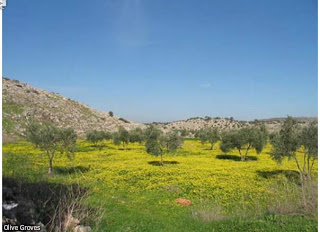 |
| olive groves |
How can this sudden and arbitrary infringement of human rights be interpreted? It will not prevent small boys throwing stones over the fence but it does prevent Israeli vehicles chasing the stone slingers. The outer roadway, built at great expense is now blocked. They may hope to reduce man-hours policing the wall, a problem that grows as the wall grows longer. At the other gate, which most farmers use, I asked a large group why the South gate had been closed and they unanimously claimed that it was the start of the theft of all the land.
No one can deny the attraction to Israel of sinking deep wells into the catchment area of all the surrounding hills. The abundant water for Israelis could increase the greenhouse culture, which is diminishing for Palestine as farmers are hustled, delayed or denied entry at the remaining gate. I have seen two greenhouse structures and three irrigation systems dismantled and trucked back through the wall in a fortnight, a significant indicator of Palestinian morale. Confiscation of the land would indicate Israel’s need for resources and their confidence that there will be no significant opposition from the international community. What happens in Jayyous may be repeated a thousand times once the wall is complete. AS this exercise in the imbalance of power could be a pattern for the future, the closure of the Northgate should be scrutinized and evaluated.
There is only one certainty in this assessment. Though speculation abounds, the Israelis will never reveal their hand until the game is won. Arbitrary, unprovoked action is their trump card. The growth of misinformation, the breakdown of communication, the failure of all planning systems will dislocate the Palestinian economy, disconcert the forces of opposition and blunt collective response. If the focus of the international community is also blurred we too may be disconcerted and weakened in our response. We should protest the closure of the South gate loudly and clearly.
Newsletter: Visit to Yanoun
This beautiful upland valley of less than a dozen farms is surrounded by settlers who gradually encroach on the Palestinians’ land. At nightfall powerful lights from the hillside are shone upon the village so that the walker below sees his shadow many times. The village of Yanoun is at the neck of the valley.
Walking with many shadows by
The necklace of bright light
And that false moon, huntress posed to rise,
You cast me dark but tall.Lace of fire and you at the neck
Where blood flows, breath expires
Breath deep, gather spit,
And hold your mind world high.
As I walked up the side of the valley I heard the voices of some settler children. Their sounds intermingled with those of the Palestinian children and reverberated around the cavernous hillside. The children never see each other.
The voices of children are calling each from each
Playing around the soundwell rim
Curdling the clear and pure within.Each child unseen is shouting
The blind are playing, only their voices woven.
Out of the echoing gorge a dark bird flaps
Hunting a rat to feed its young.
Entering as a gleaming tongue of light, mists are wont to envelop the valley within minutes.
Son of sun, the shining enters the valley
Swiftly the trick is played.
And all between us is grey
As rocks that surrender slowly
Etching the pattern of time.
A mangy half-wild dog followed me as I walked to Nabi Noun, the burial place of Noun, the father of Joshua who took the promised land for Israel. I suddenly realised I had wandered too far when I saw a settler looking down on me. I felt, perhaps, like the dog felt about me.
Under Nabi Noun
Out of the grave it came, the dark cave home,
It ran off when I looked,
But dogged my trail all day
Wandering the wilderness divide
Between the darkest cavities.
I raised my sights to the hills,
Where high eyes mastered me;
We shied away and ran off home.
Then a beautiful gazelle bounded by and both I and the settler turned to look.
Newsletter: Monitoring the Gate
Monitoring the irregularity of gate closure and the occasional arbitrary exclusion does not put enough pressure on Israel to change its policies in Jayyous nor provide suitable copy for the international media. More importantly, it does not provide the means for probing sufficiently deeply into the problems of the people of Jayyous. Conversations at the gate rapidly stumble at the language barrier. Insights have come through interpreters or the half dozen English speakers. Such knowledge is fragmented and seldom representative of the average Jayyous villager. The complexity of the developing consequences of the separation wall will not be understood by a succession of E.A.s in this manner. We are not able to listen to people’s stories on a level deep enough to provide comfort. Observation and empathy cannot achieve this.
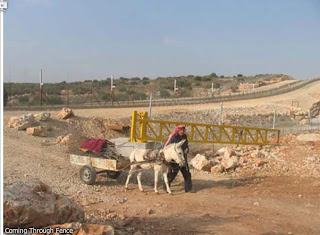 |
| horse and cart |
Yet the deep listening and analysis of consequences are urgently required as the effects of the wall on Jayyous may be replicated in communities the length of the wall as it is extended. Because Jayyous was one of the first communities to be affected by the wall, the social, economic and personal consequences will become apparent here before anywhere else. Jayyous could be a warning of unforeseen ramifications and a predictor of future planning requirements.
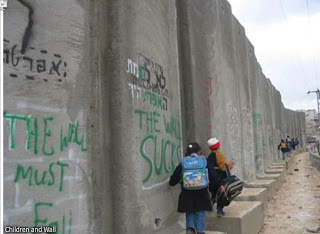 |
| The Apartheid Wall |
The present E.A.s have found creative ways of entering the Jayyous situation with limited success. There is a prospect of three E.A.s monitoring probably one gate with little effect on outcomes and with no wider role clearly defined and achievable. There follows a proposal for deepening our involvement and sharing our experience effectively.
Ideally a study of the wall in Jayyous should be academically sound. It would be an attractive prospect for a political science or sociology P.H.D. candidate who cold be helped by local Palestinian undergraduates to investigate the social and economic indicators of change. Such a structure is beyond the scope of E.A.P.P.I. but whether the academic structure existed or not, E.A’s could make a start on being involved in the areas that should be studied, not as observers but as accompaniers, hearing people’s stories and conveying their feelings to a wider public. For this, interpreters or improved language skills are essential. They could make valuable contributions to any of the following which could feed into an academic programme if it had been set up.
The effect of personal loss of income.
Consequences for families and teenagers of unemployment and emigration.
Poverty and changes in village life.
Changes in traditional agriculture.
The plight of farmers without permits.
Poverty, health problems and psychological stress.
Inability to pay university fees and unemployed graduates.
Fear, despair and decline of traditional values.
The decline in number of weddings and gender issues.
Imprisonment, militancy and non-violence.
Newsletter: The snake will bite the hand that holds it
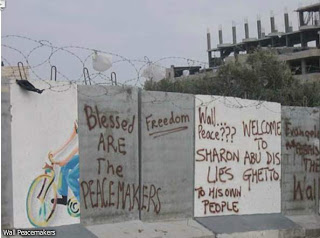 |
| Apartheid Wall |
The wall has a voice. It says loud and clear that Israeli’s wish to live apart from their neighbours. It has the body of a long black snake whose serpentine path is a wish list. As the wall approaches Jayyous it sweeps inland to enfold a settlement. On the way it captures a Palestinian village which has lost its roads and farmland so it gets a new road leading to an Israeli industrial estate. The wall then coils back on itself to imprison Qalqilia with a bottleneck exit. It zig zags up, at vast expense to the commanding heights of our village to satisfy military requirements and loops in to take all the fertile lowland. Was it the greenhouse of lush vegetables or the vast untapped water below that tempted the snake to leave the border with Israel three kilometres distant. There the land is flat, at little cost of money or international condemnation a security barrier could be built. At one stroke the future of the village was changed and the farmers severed from their land. The ever inconstant opening of the gate disrupts the pattern of farming for those with permits. They fear the land will be stolen. So I photograph them on their land against prominent landmarks and record their global positioning satellite reading. The details are recorded on disk permanently and their printed copy reads “This land belongs to (the person in the picture) and his family for as long as they wish.” I hope it is a comfort. For the majority without permits the future is bleak and uncertain, especially for the young. Let me tell you about yesterday January 20th as an example.
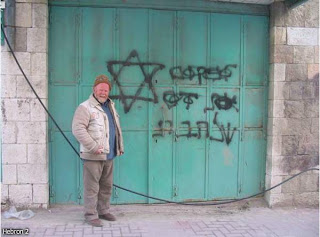 |
| Roger in front of more racist graffiti in Hebron – some of which includes ‘Arabs to the gas chambers’ |
There was a temporary checkpoint set up outside the village. The students were unable to travel to college and the local schoolteacher could not enter. This cannot be for security. During the night soldiers fired over the village. I met a father who had taken his terrified toddler to the doctors ‘for comfort’. Then a child told me he was scared to go home because the army were outside his house so I accompanied him there. A group of young woman teachers feared to pass the soldiers so I walked alongside them. “Why are you going to the village?” asks the captain. “We live there.” Is the reply. I listen to the young and ask about their future. Fadhi had hoped to study telecommunications. “My father lost his job in Israel when the border closed. His hands started to shake through stress, so he could no longer work as a welder. As a result I could not afford to go to university. I built a greenhouse beyond the Wall but I have no permit to go there now. I sit around all day with no hopes. I haven’t even permission to emigrate. I am like a blind man who does not know where he is going.”
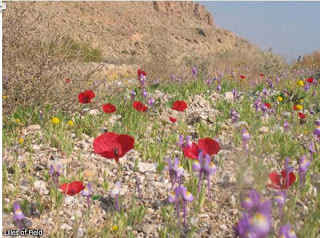 |
| lillies of field |
Last week I talked to a group of Israeli’s to find out what they wanted. All spoke of fear and many of guilt. They do want a security fence and were surprised that it was not being built along the border. There was some prejudice too shocking to record but one woman said
“The moral and spiritual damage being inflicted on our young people through serving in an unjust army is a threat to our existence. We are deluding ourselves if we think right or time is on our side. We are a trajectory that is undermining the moral and social fabric of our country.”
